Speakers
| Robert Bjork: Making Things Hard on Yourself, but in a Good Way: Creating Desirable Difficulties to Enhance Learning |
| University of California Los Angeles, USA |
|
Paradoxically, certain conditions that impair performance during instruction or practice can enhance learning, whereas conditions that retard forgetting and enhance performance during practice often fail to support learning. From a theoretical standpoint, such findings emphasize some unique characteristics of the functional architecture of humans as learners. From a practical standpoint, they help to clarify why instructors are susceptible to choosing non-optimal conditions of instruction; why learners are prone to illusions of comprehension or competence; and why real-world learning is seldom as effective as it might be.
|
| Claudia Bullerjahn & Katharina Heller: Quality and Involvement Count: A Follow-up Study on Vocal Students and their Practice Behavior. |
| University of Giessen, Germany |
|
Singers are often said to neglect practicing, which might be the result of their personality and their special practice behavior. In our recent study (Heller, Bullerjahn, von Georgi 2015) we could show that amateur vocal students with high extraversion-scores and longer practicing time experience more flow than less extraverted persons and those with shorter practicing time. Practice with rotating attention proved to be encouraging for practicing because of arousing more flow compared with other practicing strategies. Our follow-up study with 125 additional participants reconsiders our already available findings and takes other aspects of practice behavior into account by using multiple analysis methods.
|
| Clare Guss-West: Attentional Focus – Practical Application of Research Findings in the Performing Arts |
| European Network for Opera & Dance Education, RESEO, Brussels, Belgium |
|
The practical application of attentional focus research to dance and performing arts training has multiple advantages. Amongst these are: the maximization of teaching practice effectiveness; a heightened kinesthetic learning, retention and recall; and more efficient movement patterns with minimum muscular effort resulting in enhanced performance.
Clare regularly presents at The International Association of Dance, Medicine & Science and as RESEO dance advisor, she promotes enhanced creative learning in over 80 Opera and Ballet companies throughout Europe. |
| Till Heine: Effortless Excellence Applying peak performance models of learning to the everyday working life of a professional musician |
| Munich Radio Orchestra (Münchner Rundfunkorchesters des BR), Germany |
|
This presentation revolves around training methods and practice strategies that can help professional musicians meet the demands of the stage, that is, the expectation that one can deliver a top performance on any given day. Conscious mental control and self-determination are the two main components of expert music learning that has proven efficient, stress-free and durable. These learning strategies can be applied with or without an instrument. In this presentation, Heine will demonstrate Till Heine, born in Frankfurt on Main, studied with Eberhard Marschall received his Master Class diploma in Munich. He was on the faculty of the music universities in Mannheim and Mainz. For ten years, he was the assistant solo bassoonist of the German State Philharmonic Orchestra of Rhineland-Palatinate in Ludwigshafen before he became the solo bassoonist of the Munich Radio Orchestra in 2010. Over the last decade, he has held workshops about effortless peak performance for music performance majors, in collaboration with Sebastian Peschke (Munich) and Matthias Höfer (Frankfurt). These methods are applicable to musicians at all levels with any instrument. |
| Elisabeth Ligon Bjork: Why Forgetting is the Friend, not the Enemy, of Learning: A New Theory of Disuse |
| University of California Los Angeles, USA |
|
It is natural to think that learning is a matter of building up skills or knowledge in memory and that forgetting is a matter of losing some of what was built up. From that perspective, learning is a good thing and forgetting is a bad thing. The relationship between learning and forgetting is not, however, so simple, and in certain respects is quite the opposite: Conditions that produce forgetting are often the conditions that enable better learning. In this talk, I interpret such findings in the context of a theoretical framework that distinguishes between the “storage strength” versus the “retrieval strength” of the skills and knowledge encoded in one’s memory and how their interplay produces an adaptive learning system.
|
| Chris Mesagno: Using sport research to understand components of music performance |
| Federation University Australia, Ballarat, Australia |
|
The performance environments of athletes and performing artists are relatively similar (but with obvious differences), thus, it could be argued that the psychological “make-up” of these performers to perform optimally is similar. Sport research, however, is more advanced and researched than music research. Thus, this presentation will provide theoretical and conceptual information related to sport and argue for the continued collaboration between sport and music researchers to extend the research knowledge in both domains.
|
| Margaret Osborne: Igniting Successful Music Careers |
| University of Melbourne, Australia |
|
Dr. Margaret Osborne is a Postdoctoral Research Fellow and lecturer in the Melbourne Conservatorium of Music and Melbourne School of Psychological Sciences at The University of Melbourne. She is also a registered psychologist, occupational rehabilitation and careers counselor, and past-President of the Australian Society for Performing Arts Healthcare. Margaret specializes in performance science and psychology, and she is particularly passionate about enhancing motivation, practice quality, and anxiety management to optimise performance in musicians and athletes. In 2016 she leads two new programs: the first undergraduate music elective in performance psychology in Australia, and an innovative new project “IgniteLab” which supports conservatorium students’ music career development and entrepreneurship skills. |
| Raôul R. D. Oudejans: Training to Perform in High-Achievement Settings: The Application of Perceptual-Motor Learning Strategies |
| Amsterdam University of Applied Sciences, The Netherlands |
|
Raôul Oudejans will present his work on training and performing in high stress situations (with police and musicians) and visual attention training for the basketball shot, an evidence-based training method to improve basketball shooting. The presentation will include ideas about training for excellence in high achievement settings as sports, police work and music performance.
|
| Gabriele Wulf & Rebecca Lewthwaite: Training Par Excellence: The OPTIMAL Theory of Motor Learning |
| University of Nevada, Las Vegas (UNLV), USA & Rancho Los Amigos National Rehabilitation Center and University of Southern California (USC), USA |
|
If you wanted to enhance the movement skill of new learners and accomplished performers alike, what are your top priorities? Skilled motor performance is important for surviving and thriving – in life and in music. In recent years, there has been consistent evidence demonstrating the importance of motivational and attentional factors for optimal motor performance and learning. Gabriele Wulf is a Professor in the Department of Kinesiology and Nutrition Sciences at the University of Nevada, Las Vegas (UNLV). Dr. Wulf studies factors that influence the learning of motor skills. Her research has resulted in nearly 200 journal articles and book chapters, as well as two books. Dr. Wulf has received various awards for her research, including UNLV’s Barrick Distinguished Scholar Award. She served as the founding editor of two journals, Frontiers in Movement Science and Sport Psychology (2010-2012) and the Journal of Motor Learning and Development (2012-2015).
|
 Dr. Robert A. Bjork is Distinguished Research Professor in the Department of Psychology at the University of California, Los Angeles. His research focuses on human learning and memory and on the implications of the science of learning for instruction and training. He has served as President or Chair of multiple scientific organizations, including the Association for Psychological Science, and he is the recipient of multiple awards and honors, including UCLA’s Distinguished Teaching Award and the American Psychological Association’s Distinguished Service to Psychological Science Award. He is a Fellow of the American Academy of Arts and Sciences.
Dr. Robert A. Bjork is Distinguished Research Professor in the Department of Psychology at the University of California, Los Angeles. His research focuses on human learning and memory and on the implications of the science of learning for instruction and training. He has served as President or Chair of multiple scientific organizations, including the Association for Psychological Science, and he is the recipient of multiple awards and honors, including UCLA’s Distinguished Teaching Award and the American Psychological Association’s Distinguished Service to Psychological Science Award. He is a Fellow of the American Academy of Arts and Sciences. Prof. Dr. Claudia Bullerjahn studied music, biology, philosophy, pedagogical psychology and music education at Hanover University of Music and Drama and at Hanover University. In 1987 she received her teaching diploma in music (piano). In 1988 she took the first degree required for teaching at secondary schools, and in 1997 Bullerjahn received her Ph.D. with a thesis on the »Foundations of the Effect of Film Music« (»Grundlagen zur Wirkung von Filmmusik«, Wißner 2001/2014). From 1992 through 2002 she worked as a lecturer or research assistant and eventually thereafter through 2004 stood in for the professorship for Music Education as well as Systematic Musicology at Hildesheim University and has been professor for Systematic Musicology and Contemporary Music cultures at Justus Liebig University Giessen since 2004.
Prof. Dr. Claudia Bullerjahn studied music, biology, philosophy, pedagogical psychology and music education at Hanover University of Music and Drama and at Hanover University. In 1987 she received her teaching diploma in music (piano). In 1988 she took the first degree required for teaching at secondary schools, and in 1997 Bullerjahn received her Ph.D. with a thesis on the »Foundations of the Effect of Film Music« (»Grundlagen zur Wirkung von Filmmusik«, Wißner 2001/2014). From 1992 through 2002 she worked as a lecturer or research assistant and eventually thereafter through 2004 stood in for the professorship for Music Education as well as Systematic Musicology at Hildesheim University and has been professor for Systematic Musicology and Contemporary Music cultures at Justus Liebig University Giessen since 2004. Katharina Heller studied arts, music and media: organization and cultural mediation as well as applied musicology at Philipps-University Marburg and Justus-Liebig-University Giessen. In 2014 she received her M.A. with a thesis on »Investigating the practice behavior and flow experience of singing students in conjunction with personality traits« (»Zum Zusammenhang zwischen Persönlichkeitsmerkmalen, dem Flow-Erleben und verschiedenen Aspekten des Übeverhaltens bei Gesangsschülern«). Since 2013 she has worked as a volunteer for the Förderverein Gießener Gitarrentage e.V. and in 2015 in the management of the Frankfurt Radio Symphony. From October 2014 to January 2015 and again since October 2015, she has been graduate assistant at the Institute of Musicology and Music Education, Justus-Liebig-University Giessen.
Katharina Heller studied arts, music and media: organization and cultural mediation as well as applied musicology at Philipps-University Marburg and Justus-Liebig-University Giessen. In 2014 she received her M.A. with a thesis on »Investigating the practice behavior and flow experience of singing students in conjunction with personality traits« (»Zum Zusammenhang zwischen Persönlichkeitsmerkmalen, dem Flow-Erleben und verschiedenen Aspekten des Übeverhaltens bei Gesangsschülern«). Since 2013 she has worked as a volunteer for the Förderverein Gießener Gitarrentage e.V. and in 2015 in the management of the Frankfurt Radio Symphony. From October 2014 to January 2015 and again since October 2015, she has been graduate assistant at the Institute of Musicology and Music Education, Justus-Liebig-University Giessen..jpg) Clare Guss-West BHum MA is a former professional dancer, choreographer, opera director, holistic health practitioner and author whose focus is on the integration of holistic health principals and scientific research to ballet training for enhanced performance. Supported by the Nureyev Foundation and The European Network for Opera, Music & Dance Education she delivers ‘holistic ballet’™ approach to training for Finnish National Ballet, Ballet de L’Opèra du Rhin, The Royal Ballet, Opèra de Paris-Opèra Université and the RAD Professional Dancer’s Postgraduate in Teaching, Berlin Staatsballett.
Clare Guss-West BHum MA is a former professional dancer, choreographer, opera director, holistic health practitioner and author whose focus is on the integration of holistic health principals and scientific research to ballet training for enhanced performance. Supported by the Nureyev Foundation and The European Network for Opera, Music & Dance Education she delivers ‘holistic ballet’™ approach to training for Finnish National Ballet, Ballet de L’Opèra du Rhin, The Royal Ballet, Opèra de Paris-Opèra Université and the RAD Professional Dancer’s Postgraduate in Teaching, Berlin Staatsballett.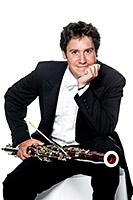 how these methods can influence the musician’s focus in concert and how coping strategies for stage performance can be practiced.
how these methods can influence the musician’s focus in concert and how coping strategies for stage performance can be practiced.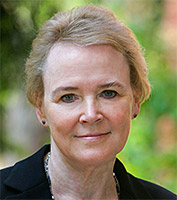 Elizabeth Ligon Bjork is Professor and Senior Vice Chair in the Psychology Department at the University of California, Los Angeles, where she has chaired UCLA’s Academic Senate and received UCLA’s Distinguished Teaching Award. One focus of her research is how principles of learning discovered in the laboratory can be applied to enhance instructional practices and self-directed learning. She is member of the Society of Experimental Psychologists, a fellow of the Association for Psychological Science, and has served on Editorial Boards and Review Panels for NIMH and NSF. Most recently, with Robert A. Bjork, she is a joint recipient of the James McKeen Cattell Fellow Award.
Elizabeth Ligon Bjork is Professor and Senior Vice Chair in the Psychology Department at the University of California, Los Angeles, where she has chaired UCLA’s Academic Senate and received UCLA’s Distinguished Teaching Award. One focus of her research is how principles of learning discovered in the laboratory can be applied to enhance instructional practices and self-directed learning. She is member of the Society of Experimental Psychologists, a fellow of the Association for Psychological Science, and has served on Editorial Boards and Review Panels for NIMH and NSF. Most recently, with Robert A. Bjork, she is a joint recipient of the James McKeen Cattell Fellow Award.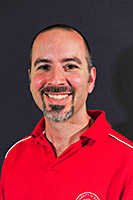 Dr. Christopher Mesagno is a Senior Lecturer in the Faculty of Health at the Federation University Australia located one hour west of Melbourne, Australia. Dr. Mesagno was the recipient of the 2007 Association for Applied Sport Psychology Dissertation Award, which introduced a self-presentation model of choking under pressure in sport. Dr. Mesagno has presented numerous internationally recognised papers on stress and anxiety in sport performance, which included the opening keynote presentation for the 2014 German Association for Sport Psychology Conference in Munich, Germany, where he suggested that of collaborative research should be undertaken between sport and music researchers. Dr. Mesagno has also successfully developed theory-matched interventions to improve performance of “choking-susceptible” athletes.
Dr. Christopher Mesagno is a Senior Lecturer in the Faculty of Health at the Federation University Australia located one hour west of Melbourne, Australia. Dr. Mesagno was the recipient of the 2007 Association for Applied Sport Psychology Dissertation Award, which introduced a self-presentation model of choking under pressure in sport. Dr. Mesagno has presented numerous internationally recognised papers on stress and anxiety in sport performance, which included the opening keynote presentation for the 2014 German Association for Sport Psychology Conference in Munich, Germany, where he suggested that of collaborative research should be undertaken between sport and music researchers. Dr. Mesagno has also successfully developed theory-matched interventions to improve performance of “choking-susceptible” athletes. The creative industries have undergone systemic changes which have reimagined how content is produced, distributed and consumed. This heralds the need for traditional conservatory education to offer comprehensive professional development for musicians through the emerging discipline of arts entrepreneurship education. Margaret will discuss these issues through the case study of IgniteLab, a learning and teaching initiative at the Melbourne Conservatorium of Music, which encourages students to develop entrepreneurial skills and strategies to create sustainable career opportunities
The creative industries have undergone systemic changes which have reimagined how content is produced, distributed and consumed. This heralds the need for traditional conservatory education to offer comprehensive professional development for musicians through the emerging discipline of arts entrepreneurship education. Margaret will discuss these issues through the case study of IgniteLab, a learning and teaching initiative at the Melbourne Conservatorium of Music, which encourages students to develop entrepreneurial skills and strategies to create sustainable career opportunities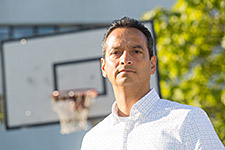 Dr. Raôul R.D. Oudejans is (Associate) Professor Learning and Performing in Sports, Department of Human Movement Sciences, VU Amsterdam and Department of Sports and Nutrition, Amsterdam University of Applied Sciences, The Netherlands. His main research and teaching areas are perceiving and moving in sports and other high-pressure contexts with emphasis on the psychological factors involved in performing. The last fifteen years Raôul specialized in the visual control of the basketball shot as well as in training and performing under pressure.
Dr. Raôul R.D. Oudejans is (Associate) Professor Learning and Performing in Sports, Department of Human Movement Sciences, VU Amsterdam and Department of Sports and Nutrition, Amsterdam University of Applied Sciences, The Netherlands. His main research and teaching areas are perceiving and moving in sports and other high-pressure contexts with emphasis on the psychological factors involved in performing. The last fifteen years Raôul specialized in the visual control of the basketball shot as well as in training and performing under pressure. The key factors in a new theory of motor learning include (a) enhanced expectancies for future performance, (b) learner autonomy, and (c) an external focus of attention. In this presentation, we review key findings and discuss implications for practice and musical performance.
The key factors in a new theory of motor learning include (a) enhanced expectancies for future performance, (b) learner autonomy, and (c) an external focus of attention. In this presentation, we review key findings and discuss implications for practice and musical performance.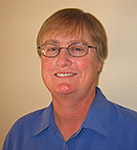 Rebecca Lewthwaite received her PhD from the University of California, Los Angeles. She is Director of Research and Education in Physical Therapy at Rancho Los Amigos National Rehabilitation Center in Los Angeles. She is also an adjunct faculty member in the Division of Biokinesiology and Physical Therapy at the University of Southern California (USC). Dr. Lewthwaite’s research focuses on the role of motivational enhancements (confidence and autonomy support) in motor performance and learning, in diverse individuals, from those undergoing physical rehabilitation to developing and high-performing athletes. Dr. Lewthwaite recently co-authored with Dr. Gabriele Wulf the OPTIMAL theory of motor learning.
Rebecca Lewthwaite received her PhD from the University of California, Los Angeles. She is Director of Research and Education in Physical Therapy at Rancho Los Amigos National Rehabilitation Center in Los Angeles. She is also an adjunct faculty member in the Division of Biokinesiology and Physical Therapy at the University of Southern California (USC). Dr. Lewthwaite’s research focuses on the role of motivational enhancements (confidence and autonomy support) in motor performance and learning, in diverse individuals, from those undergoing physical rehabilitation to developing and high-performing athletes. Dr. Lewthwaite recently co-authored with Dr. Gabriele Wulf the OPTIMAL theory of motor learning.





